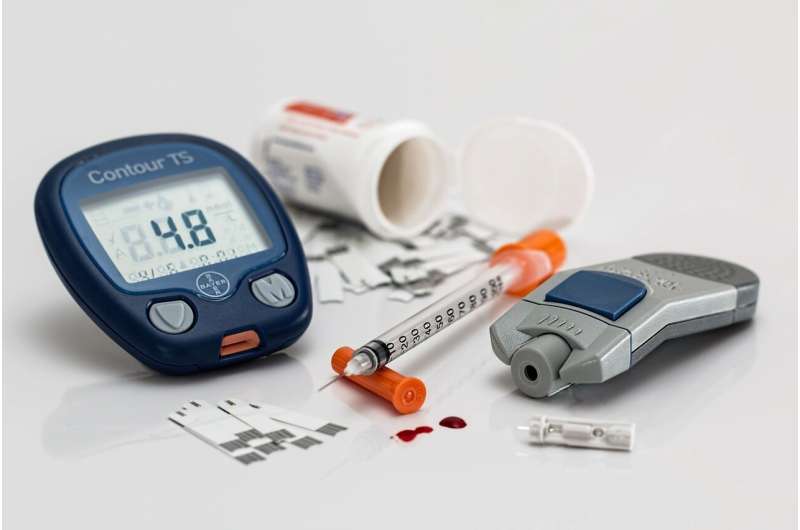Impaired immunity, gene expression may explain higher COVID-19 risk in people with diabetes

The behavior of previous coronaviruses together with physiological characteristics of diabetes may help explain why people with diabetes have a higher risk of developing COVID-19, a respiratory disease caused by the novel coronavirus SARS-CoV-2. The perspective piece is published ahead of print in the American Journal of Physiology-Endocrinology and Metabolism.
Approximately 10% of the population in the U.S. has diabetes, a metabolic disorder often associated with obesity and heart disease. Furthermore, more than a quarter of people in the U.S. older than 65 have diabetes. Diabetes, older age, obesity and high blood pressure increase the risk of hospitalization and death from COVID-19, which has reached pandemic levels. Diabetes was also a risk factor for two respiratory illnesses caused by similar coronaviruses: severe acute respiratory syndrome (SARS) in 2003 and Middle East respiratory syndrome (MERS) in 2012.
Previous research in human and animal models of diabetes suggests physiological traits exist that may explain why people with the disorder may be more likely to contract—or develop a more serious case—of COVID-19. Potential factors include:
- increased expression of angiotensin-converting enzyme 2 in the lungs, heart, kidneys and pancreas, which SARS-CoV-2 binds to in order to enter human cells;
- elevated levels of furin, a protein that, through its normal function, may make it easier for viruses to enter the body; and
- impaired adaptive immunity, which includes sub-optimal functioning of white blood cells that fight infection and an exaggerated inflammatory response by the body towards COVID-19.
The authors emphasize the importance of identifying factors that can predict the severity of COVID-19 in people with diabetes and developing solutions to remotely monitor the health of this population. "As the global pandemic unfolds and rapidly spreads across the U.S., social isolation measures will enable the transition [to provide remote patient monitoring], but there is an urgent need for basic and clinical investigations to address the many important and unanswered questions," the authors wrote.
Read the full article, "COVID-19 pandemic, coronaviruses and diabetes mellitus," published ahead of print in the American Journal of Physiology-Endocrinology and Metabolism.
More information: Ranganath Muniyappa et al. COVID-19 Pandemic, Corona Viruses, and Diabetes Mellitus, American Journal of Physiology-Endocrinology and Metabolism (2020). DOI: 10.1152/ajpendo.00124.2020




















